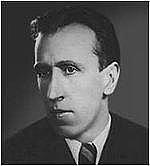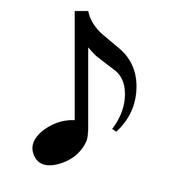- 詳細 2016年3月16日 14:41更新
-
ありそうでなかった
カバレフスキーのコミュニティーです。
「カバレフスキーの音楽が大好きだ」
と言うアナタ。ぜひご参加を。
* 管理人はあまり管理しません。ごめんなさい。
入退場御自由に。トピ立て御自由に。
Дмитрий Борисович Кабалевский
Dmitri Borisovich Kabalevsky
Kabalevsky was born in Saint Petersburg. His father was a mathematician and encouraged him to study mathematics; however, in early life he maintained a fascination with the arts, and became an accomplished young pianist, also dabbling in poetry and painting. In 1925, against his father's wishes, he accepted a place at the Moscow Conservatory, studying composition under Nikolai Myaskovsky and piano with A.B. Goldenweiser. In the same year he joined PROKULL (Production Collective of Student Composers), a student group affiliated with Moscow Conservatory aimed at bridging the gap between the modernism of the ACM and the utilitarian "agitprop" music of the RAPM. He became a professor at the Moscow Conservatory in 1932.
During World War II, he wrote many patriotic songs, having joined the Communist Party in 1940, and was the editor of Sovetskaya Muzyka for its special six-volume publishing run during the war. He also composed and performed many pieces for silent movies and some theatre music.
In 1948, when Andrei Zhdanov declared his resolution on the directions that Soviet music should take, Kabalevsky was originally on the list of named composers who were the most guilty of formalism; however, due to his connections with official circles, his name was removed.Another theory states that Kabalevsky's name was only on the list because of his position in the leadership of the Union of Soviet Composers.
In general, Kabalevsky was not as adventurous as his contemporaries in terms of harmony and preferred a more conventional diatonicism, interlaced with chromaticism and major-minor interplay. Unlike fellow composer Sergei Prokofiev, he embraced the ideas of socialist realism, and his post-war works have been characterized "popular, bland, and successful," though this judgment is attributed to many other composers of the time,and some of Kabalevsky's best-known "youth works" date from this era (the Violin Concerto, the first Cello Concerto).
Perhaps Kabalevsky's most important contribution to the world of music-making is his consistent efforts to connect children to music. Not only did he write music specifically directed at bridging the gap between children's technical skills and adult aesthetics, but during his lifetime he set up a pilot program of music education in twenty-five Soviet schools. Kabalevsky himself taught a class of seven-year-olds for a time, teaching them how to listen attentively and put their impressions into words. His writings on this subject were published in the United States in 1988 as Music and education: a composer writes about musical education.
He was awarded a number of state honors for his musical works (including at least two Stalin Prizes).
Kabalevsky died in Moscow.
1904年12月30日、ロシアのサンクトペテルブルクで
数学者の息子として生まれる。
父は息子を数学者にするのが夢であったが
カバレフスキーは音楽を学ぶ決意をし
1925年からモスクワ音楽院でニコライ・ミャスコフスキーに師事
さらに1932年には教授になった。
1940年代、ソビエト連邦共産党に入党。
1987年2月14日、モスクワで死去。
Works
Stage
Opus 24: Colas Breugnon, opera in 3 acts (1936-1938)
Opus 25: Music to the play Two Songs, after N. Shestakov (1937)
Opus 28: Golden Ears, ballet in 3 acts (1939-1940)
Opus 37: In the Fire, opera in 4 acts (1942)
Opus 47: The Taras Family, opera in 4 acts (1947-1950)
Opus 53: Nikita Vershinin, opera in 4 acts (1954-1955)
Opus 58: Song of Spring, operetta in 3 acts (1957)
Opus 83: The Sisters, opera in 3 acts (1968-1969)
Opus 90: Colas Breugnon, opera in 3 acts (second version) (1967-1968)
Orchestral
Symphonies
Opus 18: Symphony No. 1 in C sharp minor (1932)
Opus 19: Symphony No. 2 in C minor (1934)
Opus 22: Symphony No. 3 Requiem, on texts of N. Assayev, for chorus and orchestra (1933)
Opus 54: Symphony No. 4 in C minor (1956)
Opus 24A: Suite from Colas Breugnon (1938)
Opus 26: The Comedians, suite for small orchestra (1938-1940)
Opus 28A: Suite from Golden Ears (1939-1940)
Opus 29: Suite for Jazz Orchestra (1940)
Opus 56: Romeo and Julia, musical sketches for large symphony orchestra (1956)
Opus 64: Pathetic Overture (1960)
Opus 65: Spring, symphonic poem (1960)
Opus 78: To the Memory of the Heroes of Gorlovka, symphonic picture (1965)
Opus 85: The Eternal Flame in Bryansk, symphonic poem
Opus 95: The Heroes of the Revolution of 1905, for wind orchestra (1974)
Opus 96: ISME-Fanfares (1974)
Concertante
Piano
Opus 9: Piano Concerto No. 1 in A minor (1928)
Opus 23: Piano Concerto No. 2 in G minor (1935)
Opus 50: Piano Concerto No. 3 in D major 'Youth' (1952)
Opus 75: Rhapsody on a Theme of the Song Schoolyears, for piano and orchestra (1963)
Opus 99: Piano Concerto No. 4 "Prague Concerto" (1975)
Opus 48: Violin Concerto in C major (1948)
Cello
Opus 49: Cello Concerto No. 1 in G minor (1948-1949)
Opus 77: Cello Concerto No. 2 in C minor (1964)
Vocal Orchestral
Opus 12: Poem of Struggle, after A. Sharov, for chorus and orchestra (1930-1931)
Opus 15: Music to the Radiocomposition Galitsiskaya Zacheria, after B. Yansens, for soloists, chorus and orchestra (1931)
Opus 31: Parade of the Youth, for children's chorus and orchestra (1941)
Opus 33: Three Vocal-Monologues, for voice and orchestra (1941)
Opus 35: Vast Motherland, cantata for mezzo-soprano, bass, chorus and orchestra (1941-1942)
Opus 36: Revenger of the People, suite on text by Y. Dolmatovski for mixed chorus and orchestra (1942)
Opus 57: Song of Tomorrow, Spring and Peace, cantata for children's chorus and orchestra (1957-1958)
Opus 63: The Leninists, cantata after Y. Dolmatovski for three choruses and large symphony orchestra (1958-1959)
Opus 72: Requiem, for soloists, mixed chorus, children's chorus and orchestra (1962)
Opus 82: On the Motherland, cantata after Z. Solodar, for children's chorus and orchestra (1965)
Opus 93: A Letter to the 30th Century, oratorio (1972)
Chamber/Instrumental
String Quartets
Opus 8: String Quartet No. 1 in A minor (1928)
Opus 44: String Quartet No. 2 in G minor (1945)
Violin
Opus 21: Improvisation for Violin and Piano (from the music of the film Night of St. Petersburg) (1934)
Opus 69: Rondo for Violin and Piano (1961)
Opus 80: Pieces for Violin and Piano (1965)
Cello
Opus 2: Two Pieces for Cello and Piano (1927)
Opus 68: Etudes in Major and Minor for Cello Solo (1961)
Opus 71: Sonata for Cello and Piano, in B major (1962)
Opus 79: To the Memory of Sergei Prokofiev, rondo for cello and piano (1965)
Piano
Opus 1: Three Preludes (1925)
Opus 3: Album of Children's Pieces (1927-1940)
Opus 5: Four Preludes (1927-1928)
Opus 6: Piano Sonata No. 1 in F major (1927)
Opus 13 No. 1: Piano Sonatina No. 1 in C major (1930)
Opus 13 No. 2: Piano Sonatina No. 2 in G minor (1933)
Opus 14: From the Life of a Pioneer, pieces for piano (1931)
Opus 20: Four Preludes (1933-1934)
Opus 27: Thirty Children's Pieces (1937-1938)
Opus 30: Three Pieces (1939)
Opus 38: Twenty-Four Preludes (decicated to N. Miaskovsky) (1943-1944)
Opus 39: Twenty-Four Easy Pieces (1944)
Opus 40: Easy Variations in D major (Toccata) and in A minor (1944)
Opus 45: Piano Sonata No. 2 in E flat major (1945)
Opus 46: Piano Sonata No. 3 in F major (1946)
Opus 51: Easy Variations, volume 2: Five Variations on Folk-Themes (1952)
Opus 59: Rondo in A minor (1958)
Opus 60: Four Easy Rondos (1958)
Opus 61: Preludes and Fugues (1958-1959)
Opus 81: Spring-Dances (1965)
Opus 84: Recitative and Rondo (1967)
Opus 86: In The Camp of the Pathfinders, six pieces (1968)
Opus 87: Variations on Folk-Themes (1967)
Opus 88: Six Pieces (1971)
Opus 89: Thirty-Five Easy Pieces (1972-1974)
Opus 93A: Lyric Melodies (1971-1972)
Vocal/Choral
Opus 4:
Opus 7: Two Songs after M. Artamonov and V. Shukovski, for high voice and piano (1928)
Opus 10: Three Songs after M. Gerassimov, M. Artamonov and N. Kliuyev, for voice and piano (1929-1930)
Opus 11: Eight Merry Songs after V. Kataev, for voice and piano (1929-1930)
Opus 16: Three Songs after E. Musam, A. Sharov and A. Surkov, for low voice and piano (1931-1932)
Opus 17: Eight Songs after O. Vissotskaya, A. Prishelts and A. Barto, for children's chorus and piano (1932)
Opus 32: Two Songs after A. Bezemenski and N. Vladimirski, for voice and piano (1941)
Opus 34: Three Songs after S. Marshak, for voice and piano (1941)
Opus 41: Seven Merry Songs after S. Marshak, for voice and piano (1944-1945)
Opus 42: Four Funny Songs after S. Marshak and S. Michalkov, for voice and piano (1945)
Opus 43: Two Russian Folk-Songs, for bass or tenor and piano (1945)
Opus 43A: Two Russian Folk-Songs, version for mezzo-soprano and piano (1964)
Opus 52: Ten Shakespeare Sonnets, for voice and piano (1953-1955)
Opus 55: Two Romances after A. Kovalenkov, for tenor and piano (1956)
Opus 62: In Fairy Tail's Forrest, musical pictures for narrator, voice and piano (1958)
Opus 66: The Camp of Friendship, songs of the pathfinders of Artek, for voice or children's chorus and piano (1961)
Opus 67: A Kitchen-Garden on View, round dances for children's chorus and piano (1961)
Opus 70: Three Dance-Songs, for voice and piano (1960)
Opus 73: Three Songs of Revolutionary Cuba, for voice and piano (1963)
Opus 74: Three Eightlines of R. Gamsatov, for mezzo-soprano and piano (1963)
Opus 76: Five Romances after R. Gamsatov, for mezzo-soprano and piano (1963-1964)
Opus 91: Conversation with a Cactus, eight children's songs after V. Viktorov for voice and piano (1969)
Opus 92: Three songs about Lenin, for children's chorus and piano (1970)
Opus 94: Three Songs-Plays after I. Rachillo, for children's chorus and piano (1973)
Opus 97: Songs of Friendship, for female chorus, children's chorus and soprano or tenor (1975)
Opus 98: Two Youth-Songs after V. Viktorov, for voice and piano (1975)
Opus 100: Time, six romances after S. Marshak for baritone and piano (1975)
Opus 101: Cry of the Song", cycle of romances after O. Tumanian for voice and piano (1978-1979)
ヴァイオリン協奏曲 ハ長調 Op.48(1948年)
チェロ協奏曲第1番 ト短調 Op.49(1949年)
チェロ協奏曲第2番 ト長調 Op.77(1964年)
リムスキー=コルサコフの主題による24の小前奏曲(1924年)
ヴァイオリン協奏曲 ハ長調 Op.48(1948年)
チェロ協奏曲第1番 ト短調 Op.49(1949年)
チェロ協奏曲第2番 ト長調 Op.77(1964年)
リムスキー=コルサコフの主題による24の小前奏曲(1924年)
ピアノ協奏曲第1番 イ短調(1929年)
ピアノ協奏曲第2番 ト短調(1936年)
ピアノ協奏曲第3番 ハ長調(1952年)
ピアノ協奏曲第4番「プラハ」(1975年)
交響曲 第1番 嬰ハ短調(1932年)
交響曲 第2番 ハ短調(1934年)
交響曲 第3番 変ロ短調「レクイエム」(1933年)
交響曲 第4番 ハ短調(1956年)
歌劇「コラ=ブルニョン」 Op.24(1938年)
組曲「道化師」 Op.26(1939年)
組曲「ロメオとジュリエット」 Op.56
交響詩「春」 Op.65(1960年)
30の子供のためのピアノ小曲集 Op.27
ソナチネ
関連のあるコミュニティ
ロシア・ソヴィエト音楽
http://mixi.jp /view_c ommunit y.pl?id =406312












